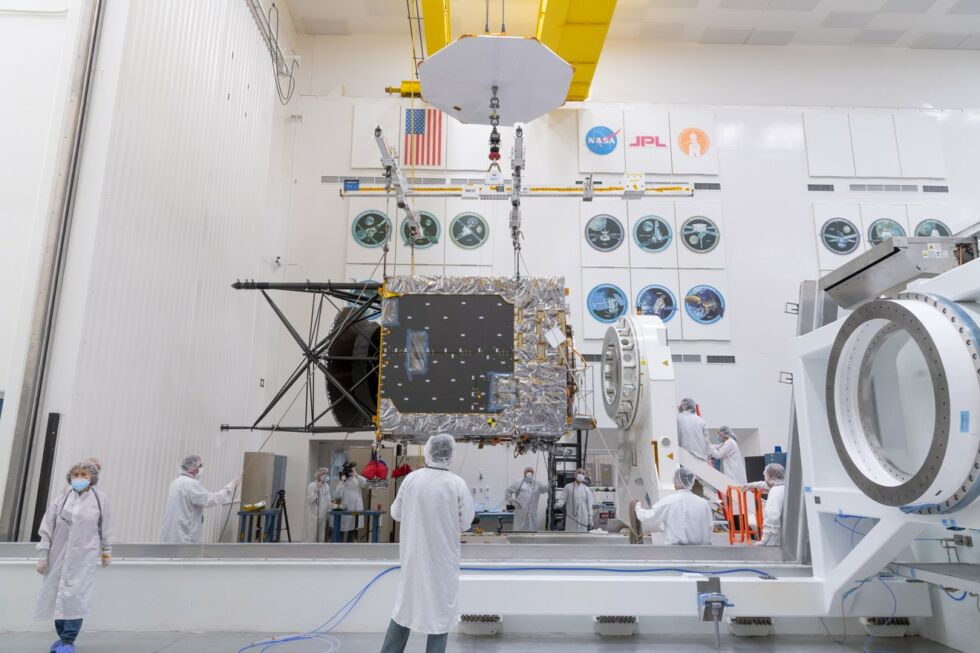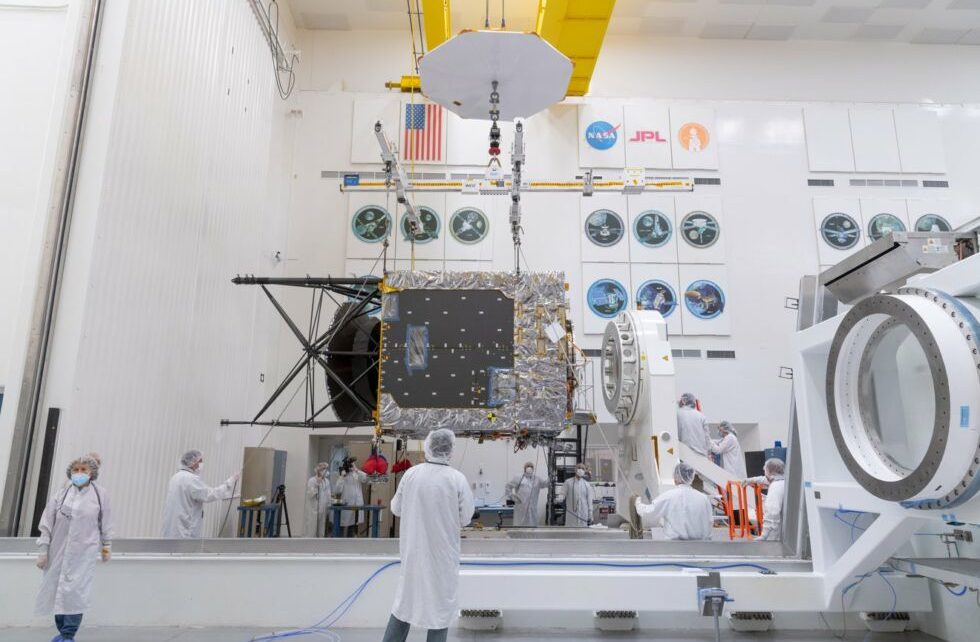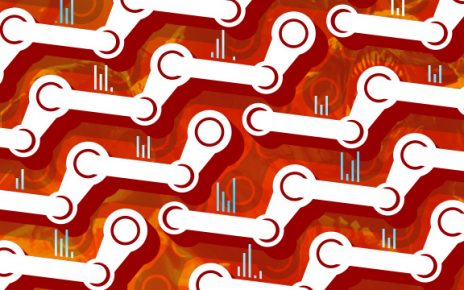-

The Psyche spacecraft chassis was delivered to the Jet Propulsion Laboratory in late March, 2021. [credit: NASA/JPL-Caltech ]
A satellite company named Maxar recently delivered a passenger van-sized chunk of spacecraft to NASA’s Jet Propulsion Laboratory in California. This chassis will serve as the backbone for a robotic spacecraft that will explore a metallic asteroid for the first time. This ambitious mission, named Psyche after the eponymous asteroid it will explore, is due to launch next summer on a Falcon 9 rocket.
Once in space, the spacecraft will use an innovative means of propulsion, known as Hall thrusters, to reach the asteroid. This will be the first time a spacecraft has ventured into deep space using Hall thrusters, and absent this technology the Psyche mission probably wouldn’t be happening—certainly not at its cost of just less than $1 billion.
For David Oh, the large, boxy chassis represents one of those “full circle” moments in life. More than two decades ago, he worked on Hall thruster technology as a graduate student at the Massachusetts Institute of Technology. He would go on to work for Space Systems/Loral, which first put the propulsive technology on large commercial satellites and would later be acquired by Maxar.





